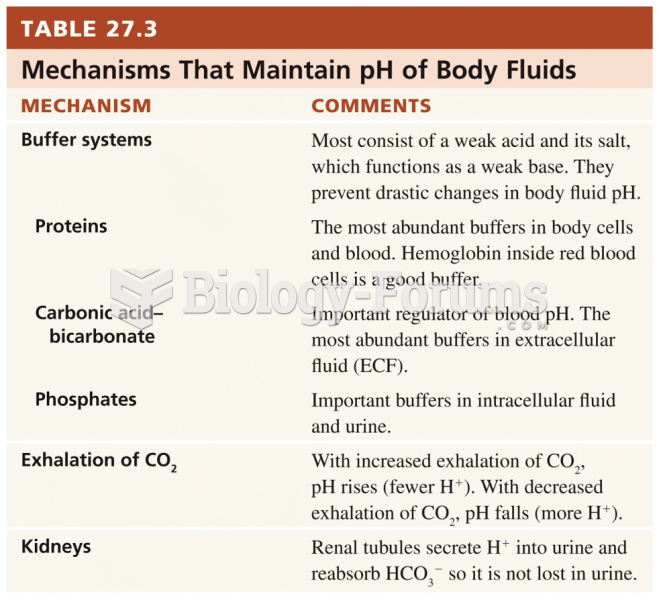|
|
|
As many as 20% of Americans have been infected by the fungus known as Histoplasmosis. While most people are asymptomatic or only have slight symptoms, infection can progress to a rapid and potentially fatal superinfection.
In 1835 it was discovered that a disease of silkworms known as muscardine could be transferred from one silkworm to another, and was caused by a fungus.
The largest baby ever born weighed more than 23 pounds but died just 11 hours after his birth in 1879. The largest surviving baby was born in October 2009 in Sumatra, Indonesia, and weighed an astounding 19.2 pounds at birth.
The heart is located in the center of the chest, with part of it tipped slightly so that it taps against the left side of the chest.
More than one-third of adult Americans are obese. Diseases that kill the largest number of people annually, such as heart disease, cancer, diabetes, stroke, and hypertension, can be attributed to diet.
 A slowdown in athletic ability begins in the 20s, although it is only noticeable for those who are t
A slowdown in athletic ability begins in the 20s, although it is only noticeable for those who are t
 For ice massage, ice is frozen in a cylindrical container or a paper cup (A). The top half of the cu
For ice massage, ice is frozen in a cylindrical container or a paper cup (A). The top half of the cu





